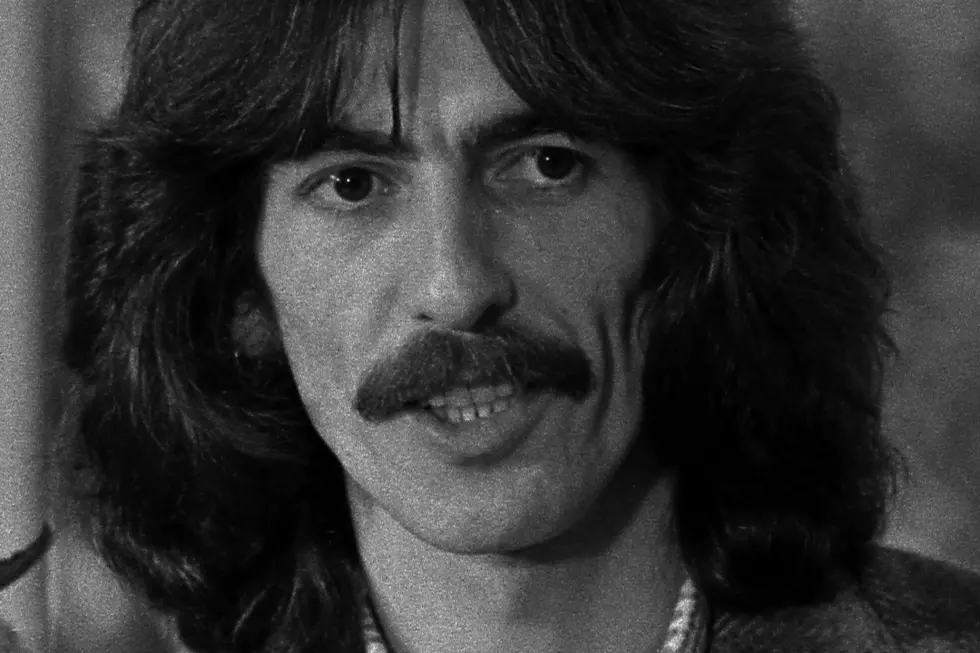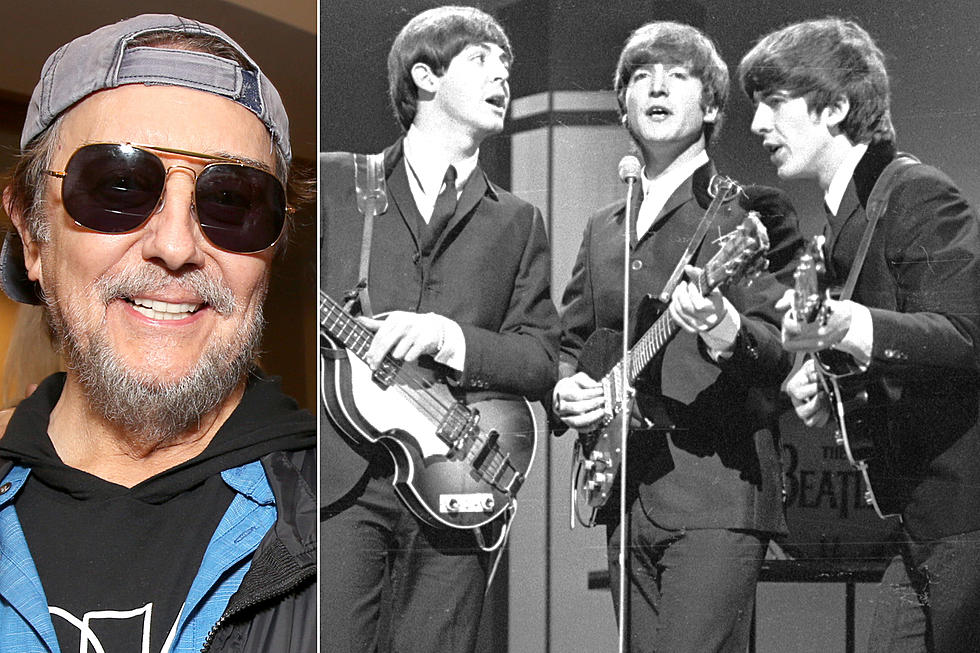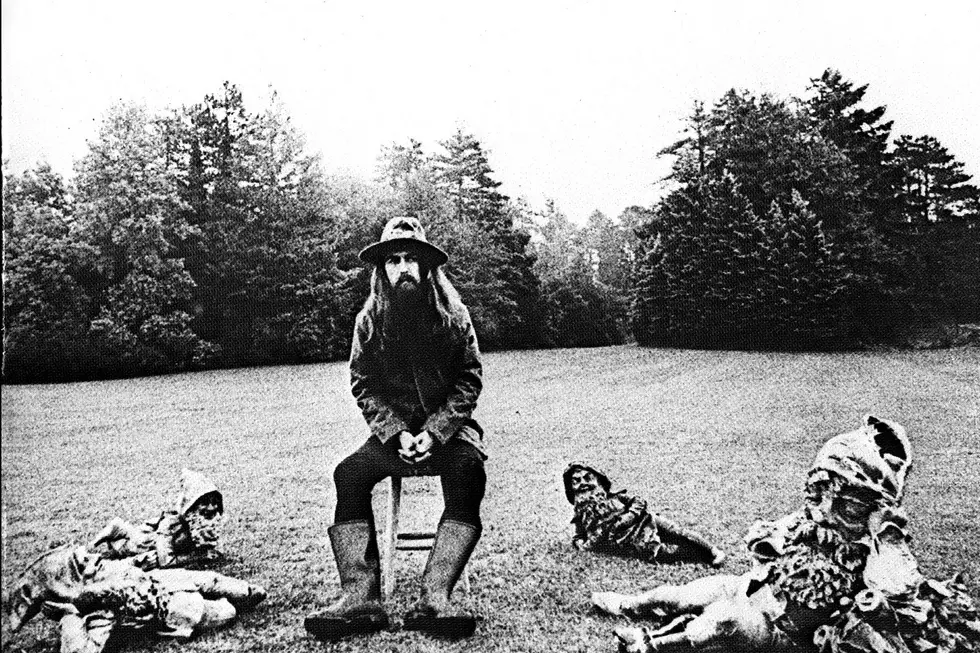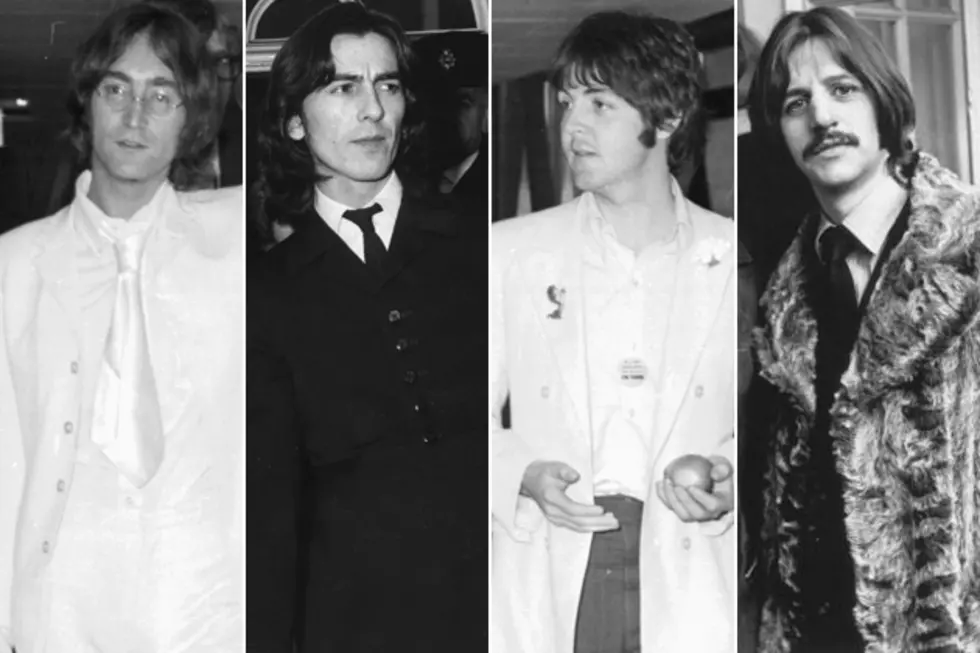
Revisiting George Harrison’s Ill-Fated 1974 North American Tour
In 1974, George Harrison was caught between his Beatles fame and the solo career he'd been working toward for years, caught between the rock and roll life and a growing spirituality, caught between marriage and a very public divorce – and caught between finishing a new album and hitting the road for the first American solo jaunt by any of the former Fabs.
As the George Harrison and Friends North American Tour began, on Nov. 2, 1974, at Pacific Coliseum in Vancouver, he'd become worn down, and croaky from relentless sessions and rehearsal work. Embattled from all sides, Harrison seemed to be itching for a fight. He’d hardheadedly rework his best known songs (confusing more than a few Beatles fans along the way), take pot shots at his former bandmates and ultimately wall himself off from those he was currently working with, too. As the Dark Horse album arrived late into the concert schedule, Harrison found himself on the edge of a breakdown – with only a new love to tether him down.
Thing is, Harrison knew from the first just what was at stake, having been part of a series of whirlwind U.S. trips with the Beatles between 1964-66. “I either finish this tour ecstatically happy and want to go on tour everywhere," he said in the days before the Vancouver show, "or I’ll end up just going back to my cave for another five years.”
It would actually be more like 17 years before Harrison mounted another major tour, and it wouldn't be anywhere near the U.S. (Instead, he’d play a series of Japanese shows with Eric Clapton.) In many ways, the stinging response to these 1974 dates ended Harrison's dream of shifting his on-stage persona away from the Beatles and into one that brought in elements of his new-found faith and interest in world music. He'd focus instead on making records, though even that pursuit would eventually slow to a trickle.
Looking back now, the George Harrison and Friends North American Tour certainly held blockbuster promise. Harrison was joined by a group of talented sidemen that included a former Beatles collaborator in Billy Preston on organ, along with Willie Weeks (Randy Newman, Clapton) on bass, Andy Newmark (John Lennon, Pink Floyd) on drums, horn players Tom Scott and Chuck Findley, and guitar wunderkind Robben Ford (who later worked with Joni Mitchell, Miles Davis, Kiss and others).
Preston had, by then, established his own solo career, and was able to bring rousing versions of radio favorites like "Outta Space," "Nothing From Nothing" and "Will It Go 'Round in Circles" to the shows.
Meanwhile, Dark Horse would become a gold-selling Top 5 hit album, boasting a pair of charting hits including the title track. Harrison also had access to a clutch of then-new solo smashes like "My Sweet Lord" and "Give Me Love," to say nothing of notable Beatles songs including "Something," "For You Blue" and "While My Guitar Gently Weeps" – all of which made it onto their regular set lists.
But Harrison had simply worn out his voice in the run up to these dates, damaging momentum for most of both the album and supporting concerts. Critics witheringly called it "The Dark Hoarse Tour." Then there was his insistence on showcasing the Indian orchestral musings of Ravi Shankar, Harrison's long-time guide through intriguing sitar experiments on tracks like "Norwegian Wood" and "The Inner Light." Lengthy segments of this exotic, but utterly foreign material drew scathing reviews from some quarters.
As the dates flew by, the pressure on Harrison – and on his weakened voice – only grew. "The show was long, and often we would do two shows the same day," Ford said in 2013. "That was a very long day. Then we’d go to the airport, up on a private plane and on to the next city. There was no hanging out on the road. Basically people were sleeping, sound checking, eating, playing and then traveling."
Rolling Stone suggested that Harrison eventually turned to "snorting mountains of cocaine" to keep going, something else that "absolutely shredded" his singing.
It might all have been forgiven, even the strange Indian music, had there been more crowd-pleasing Beatles songs. At least, that's what one of his former bandmates suggested. "I think he made a mistake on that tour," Lennon is quoted as saying in Graeme Thomson's George Harrison: Behind the Locked Door. "One of the basic mistakes seemed to be that people wanted to hear the old stuff."
Unfortunately, the songs that he did play from that earlier period were often altered, sometimes beyond recognition, as Harrison made a rather foolhardy attempt to remove himself from the buzz that always surrounded the Beatles. "For You Blue," originally a fun slide-focused aside on 1970's Let It Be, was given a jazzy makeover. Lyrics for both "Something" and "While My Guitar" were altered. The latter, rather jarringly, would conclude with "tries to smile" rather than "gently weeps." Harrison offered a tip of the hat to Lennon, an early mentor, by including "In My Life" from 1965's Rubber Soul, but changed another line there, as well – singing "in my life, I love God more."
"He was seeking peace of mind, and something to balance all of that hysteria and Beatles stuff," Newmark says in George Harrison: Behind That Locked Door. "His spiritual thing was real. He wanted to help people; he had a conscience. It wasn't clearly defined what his trip was, but he was seeking the highest person within himself – his best self. He was totally serious about it."
That included dedicating several concerts on tour to local charities. The San Francisco stop, for instance, worked as a benefit for the Haight-Ashbury Free Clinic, which had recently lost federal funding. Those stories often went untold, in particular by a media hoard angry that Harrison wasn't living up to their expectations.
As the tour continued, Harrison's appearances drew a who's who of famous guests and former collaborators. Bob Dylan, with whom Harrison had worked on his solo debut, was at both the afternoon and evening programs in Los Angeles. Lennon caught the Nassau Coliseum appearance on Long Island. David Bowie went backstage at Memphis. Paul McCartney – who tried, and failed, to sneak in unnoticed with a wig and fake mustache – was at one of the Madison Square Garden stops.
That didn't stop Harrison from distancing himself, and in the sharpest terms, from what had come before. “I don’t think the Beatles were that good," he said, during a 1974 press conference. "I think they’re fine, you know. Paul is a fine bass player, but he’s a bit overpowering at times. To tell the truth, I’d join a band with John Lennon any day, but I couldn’t join a band with Paul McCartney. It’s nothing personal; it’s just from a musical point of view.”
He was clearly restless, clearly looking to redefine himself, clearly in the middle of both a losing proposition and a growing, very public meltdown. This mirrored what was going on back home, too, as Harrison's troubled union to the former Patti Boyd – for whom Harrison’s friend Clapton had already written the tortured love song "Layla" – was also winding down.
Harrison became more withdrawn, playing the shows and then disappearing with a label employee named Olivia Arias who'd eventually become his wife. "He really spent a lot of time with her," Ford added. "We just didn’t tend to see him all that much."
Ultimately, Harrison came to see the tour's issues as more a matter of media perception than anything. Bootlegs, to some degree, back up that notion – as fans appear to receive the dates with no small amount of enthusiasm. "The public as a whole enjoyed it; it was always standing ovations – even for the Indian section," Harrison later argued. "But they got on my case, the press – some of them anyway."
He would return to England, shaken but still determined. "When I got off the plane, and back home, I went into the garden and I was so relieved," Harrison wrote in his autobiography I, Me, Mine. "That was the nearest I got to a nervous breakdown. I couldn't even go into the house. I was a bit wound up – then, when I came in, I looked in the mirror and decided: 'Oh, I'm not that bad after all.'"
Best Songs on Every George Harrison Album
More From Ultimate Classic Rock









